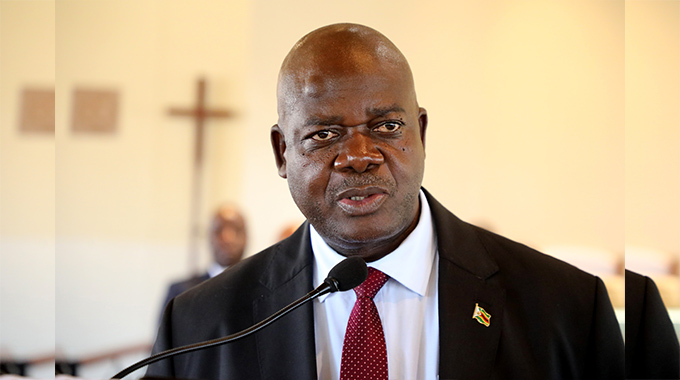Minister scoops UK award

Patrick Chitumba, [email protected]
PRIMARY and Secondary Education Minister, Torerai Moyo, has won a continental award from the Global Skills Hub United Kingdom in recognition of his contribution to education for African children.
He was handed the award at the closing ceremony of the 2nd Africa Education Summit held at the University of Nottingham over the weekend.
Minister Moyo said that his Heritage-Based Curriculum (HBC) supports Zimbabwe’s Competence-Based Education, emphasising skills development to improve the nation’s economic prospects and ensure that the country becomes an upper middle-income economy by 2030.
The HBC caters for different strengths and abilities, using different pathways to help build creativity and innovation.
The modular approach covers foundational skills for learning, as well as linguistic, scientific and technological competencies, alongside an appreciation of local heritage and national identity.
The HBC promotes gaining skills to succeed in the world of work, with entrepreneurship programmes also on offer.
“This emphasises the teaching of both theory and practice and balancing the acquisition of knowledge and skills. It aims to produce pupils with relevant skills, applied knowledge, values, attitudes and dispositions that are key to national development,” he said.
“Pupils will, therefore, be channelled through different pathways as per their strengths and abilities from Early Childhood Development (ECD) to Form 6, to initiate and enhance creativity and innovation for socio-economic transformation.”
He said the HBC integrates and reinforces a strong scientific and technological bias as part of the Government’s skills development strategy, which creates a base for human capital development through acquisition of skills and values for employment creation, thus furthering education in higher and tertiary education institutions.
“HBC accommodates a two route progression system for post O-level pupils. Route 1 is for those who progress to A-level then university. Route 2 is for those who fail to proceed to A-level, but follow the technical and vocational education and training skills pathway. Pupils enrol for vocational courses and for skills worker certification,” he told the delegates.
Minister Moyo said learners are also certificated at the point of readiness for some skills they will have acquired, for example, first aid, driving and other vocational skills.
He said at primary level, there was the infant school module from ECD to Grade 2, and junior school module from Grade 3 to 7.
The modules are meant to make sure that learners acquire foundational skills for learning in the cognitive, psycho-motor and affective domains, establishment of building blocks for socialisation, development of an initial appreciation of national heritage and identity, development of physical, psycho-motor and social competencies and demonstration of early signs towards lifelong learning and problem-solving aptitudes.
He said at secondary school level, the curriculum demonstrates linguistic competencies in both local and a foreign language, establishment of firm grounding in science and technology disciplines (STEM), display of cognitive mastery in heritage studies and national identity themes as well as an appreciation of other cultures.
He said the upper secondary school module (Form 5-6) is a deepened theoretical and practical knowledge of selected disciplines in preparation for further education and workplace skills development for the learners
The innovation in education, he said, comes from identifying problems, researching and learning to develop new solutions to address those problems.
Minister Moyo also told delegates that learners were involved in entrepreneurship programmes that encourage learning of business development, marketing and financial management, practically establishing their own businesses.
He said the Government was committed to providing learners with the skills needed to adapt to trends and change due to emerging technologies and making education a driver of an empowered and prosperous middle income society by 2030.












Comments